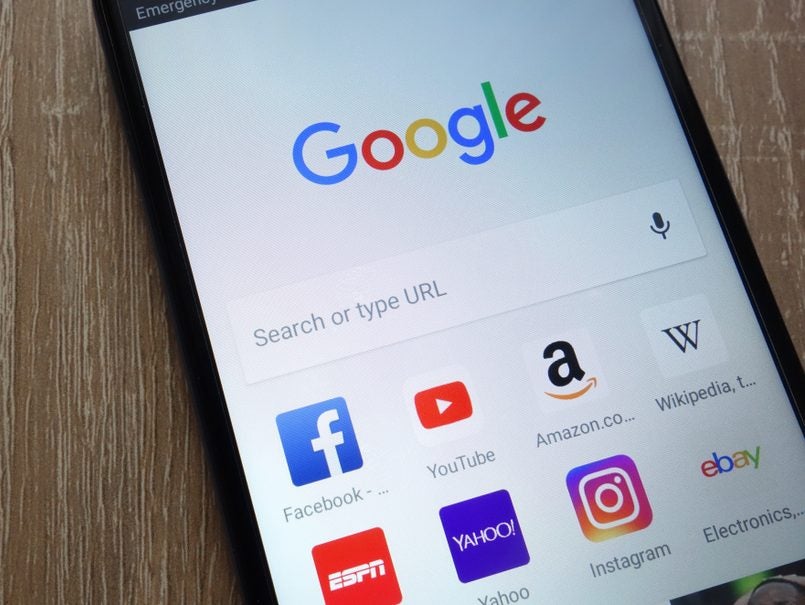
Facebook and Google are both going to provide more active support to the news media over the next five years, representatives for the tech giants said on Wednesday.
But Financial Times editor Roula Khalaf said the industry had made a “mistake” in not coming together sooner to confront the platforms, instead allowing unilateral deals to be made.
Both platforms have in the past year stepped up their deal-making with publishers, with Facebook News and Google News Showcase both going live in the UK and elsewhere allowing many major newsbrands to benefit from licensing deals.
The payouts have been seen as a bid to soften incoming regulation to curb their dominance of the digital advertising market but the latest Digital News Report from the Reuters Institute for the Study of Journalism noted the sums “remain modest” in the UK compared to Australia where politicians came close to implementing new laws.
John Severinson, Facebook’s head of partner development across Europe, said it was “pretty straightforward” to say that his platform would be more active in supporting the news media industry over the next five years.
However, speaking at an online event to mark the launch of the Digital News Report on Wednesday, he warned caution was needed.
“I think it’s a question to be discussed about how,” he said. “We obviously don’t want a situation where news media becomes reliant on Facebook funding either.”
Severinson pointed out Facebook has introduced ways to help publishers transition to a sustainable business model, including by building tools allowing them to extend their paywalls onto Facebook and by making sure trustworthy sources of news are given prominence.
“One of our core opportunities here is getting more trustworthy and high-quality news on Facebook while supporting that transition… it’s fair to be critical and a sceptic of what we’re doing but I think we’re on a good trajectory and a good path,” Severinson said.
Asked the same question about whether Google would be more or less active in its support for the news media over the next five years, Madhav Chinnappa, director of news ecosystem development, said “definitely more”.
“I think the way we structure what we do under our Digital News Initiative is very much based around dialogue so we want to do more,” he said.
Chinnappa said Google would always explore different options in different countries because of the diversity of their news ecosystems.
The Google News Showcase is paying at least 450 publishers in more than a dozen countries including the UK, Australia, Germany, Brazil, Canada, France, Japan and Argentina.
[Read more: Trust in UK news media boosted since pandemic but still lower than pre EU referendum]
Chinnappa added that the Covid-19 crisis had helped people see the value of news – a notion borne out by the Reuters Institute’s Digital News Report finding that trust has been boosted since the pandemic began.
“No one’s saying news is dead anymore. I think that’s something we can all build on,” he said.
“From our perspective, we see this as a news ecosystem – there’s publishers, suppliers, social media networks, search engines, they all have different roles in that ecosystem but we’re all interconnected so we at Google believe we’re trying to do as much as we can to help that ecosystem overall from a sustainable point of view, from a diverse point of view and from an innovative point of view as well.”
Asked whether the platforms should be doing more to support news journalism the FT’s Khalaf said her preference was for updated legislation.
“I don’t believe in subsidies whether it’s from the platform or from the government,” she said. “I think what would be important and it’s something that we have argued is if you have laws that underpin the value of news.
“I think when it comes to the platforms it may have been a mistake on the part of the industry because the industry should have come together in a much more powerful way to negotiate with the platform and to confront the platform and that is unfortunately not what’s happened.
“The platforms have been able to do unilateral deals with various publishers but yes, this is one of the biggest challenges that I think the media has faced over the last few years.”
Rosalia Lloret, chief executive of Spanish news website elDiario.es and a former member of Google’s Digital News Innovation Fund Council, told the panel it was a “good trend” that legislation being discussed around the world is “helping publishers to have a bit more negotiating power with platforms”.
But she added her “fantasy” was that platforms would charge users instead of relying on advertising “so they would maybe compete a little bit less with the publishers”.
She also advocated a move away from click-based algorithms that choose how to prioritise content on the platforms, saying it was “precisely because of the centrality of clicks in their algorithms we have all these clickbait types of content and polarising content with really noisy headlines”.
Picture: Shutterstock
Email pged@pressgazette.co.uk to point out mistakes, provide story tips or send in a letter for publication on our "Letters Page" blog

